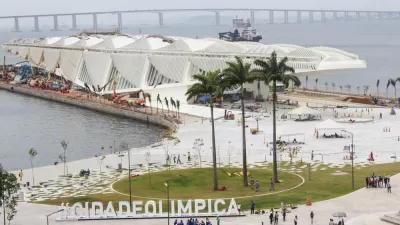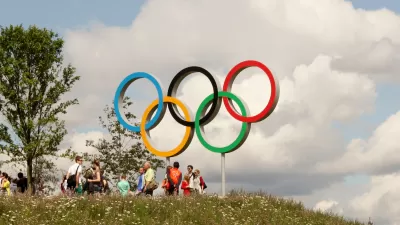Taxpayers typically contribute more than 50 percent of the cost of a new stadium or arena these days, but what are they getting for their money?
"The 2008 Major League Baseball season will be the last one played in Yankee Stadium. After 85 years, the most storied venue in American sports will be torn down. Starting in 2009, the New York Yankees will play in the "new" Yankee Stadium, built right next to the old one. Across town in Queens, another New York baseball stadium, much less famous and hallowed, will also shut its doors after 2008. The close of Shea Stadium, home to the New York Mets since 1964, will make way for Citi Field. Both projects have been in the works for some time. While the new Yankee Stadium has been heavily subsidized by New York taxpayers, Citi Field is entirely a private endeavor-which, as modern sports stadiums go, makes it somewhat unusual.
Since 1990, construction of stadiums and arenas for professional sports franchises has occurred at an incredible pace. In that time, Major League Baseball (30 teams) has opened 19 new stadiums and has three more currently under construction. The National Football League (32 teams) has opened 17 new stadiums; done major renovations to four others; has three under construction; and has four more projects at various stages of planning and negotiations. The National Basketball Association (30 teams) has opened more than two-thirds of its 30 arenas since 1990, and at least three NBA franchises are actively seeking new arenas.
In most cases, state and local governments have been closely involved in the financing, design, construction, and management or ownership of professional sports facilities. Even Washington has played a role: the local and state bonds used to fund new stadiums and arenas typically are exempt from federal income tax. This has been the subject of hearings before the House Oversight Subcommittee on Domestic Policy, with some lawmakers questioning whether subsidizing stadiums for private gain is consistent with the goal of aiding "public" infrastructure projects. Hundreds of millions of tax dollars are at stake, so it is important for business leaders and elected officials to understand the costs and benefits of publicly financed stadiums."
FULL STORY: A Closer Look at Stadium Subsidies

Alabama: Trump Terminates Settlements for Black Communities Harmed By Raw Sewage
Trump deemed the landmark civil rights agreement “illegal DEI and environmental justice policy.”

Planetizen Federal Action Tracker
A weekly monitor of how Trump’s orders and actions are impacting planners and planning in America.

The 120 Year Old Tiny Home Villages That Sheltered San Francisco’s Earthquake Refugees
More than a century ago, San Francisco mobilized to house thousands of residents displaced by the 1906 earthquake. Could their strategy offer a model for the present?

Ken Jennings Launches Transit Web Series
The Jeopardy champ wants you to ride public transit.

BLM To Rescind Public Lands Rule
The change will downgrade conservation, once again putting federal land at risk for mining and other extractive uses.

Indy Neighborhood Group Builds Temporary Multi-Use Path
Community members, aided in part by funding from the city, repurposed a vehicle lane to create a protected bike and pedestrian path for the summer season.
Urban Design for Planners 1: Software Tools
This six-course series explores essential urban design concepts using open source software and equips planners with the tools they need to participate fully in the urban design process.
Planning for Universal Design
Learn the tools for implementing Universal Design in planning regulations.
Clanton & Associates, Inc.
Jessamine County Fiscal Court
Institute for Housing and Urban Development Studies (IHS)
City of Grandview
Harvard GSD Executive Education
Toledo-Lucas County Plan Commissions
Salt Lake City
NYU Wagner Graduate School of Public Service




























